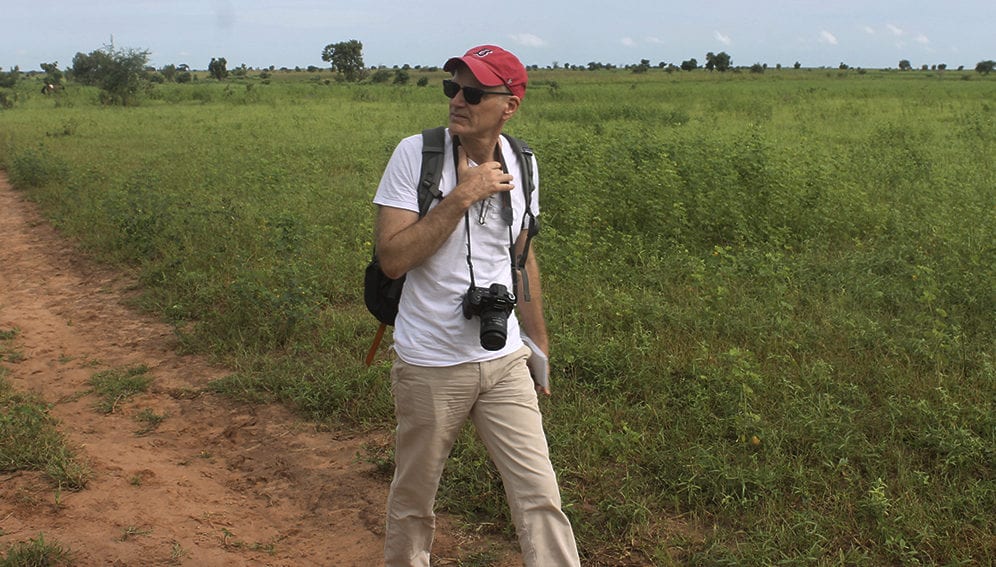Send to a friend
The details you provide on this page will not be used to send unsolicited email, and will not be sold to a 3rd party. See privacy policy.
[DAKAR] The next World Conference of Science Journalists (WCSJ) is hoping a dedicated Francophone Day will be a first step towards creating an international network of French-speaking science journalists, according to organising committee member Yves Sciama.
The Francophone Workshop will be on the first day of the July 1-5 event in Lausanne, Switzerland.
It is the first time the event has been held in a French-speaking country, and the organising committee has invested a lot in a promotional campaign targeted at journalists from the French-speaking world, in particular those from sub-Saharan Africa.
They are being encouraged to get involved and be part of an event that is usually dominated by the English-language media.
Sciama outlines why Francophone journalists in sub-Saharan Africa should attend this biennial gathering, and what steps the continent needs to take should it aspire to host this major event in the future.
What specific arrangements have been made for WCSJ 2019 which is being held for the first time in a Francophone country?
We are very aware of the fact that this will be the first time the event takes place in the Francophone world. This is why we are devoting a whole day to a Francophone Workshop on July 1. It will have two objectives. First, we want to bring together, in a professional context, French-speaking journalists from France, sub-Saharan Africa, the Maghreb, Quebec, Switzerland and elsewhere, so that they can establish relationships, get to know each other, and in time, maybe think about cooperating together on projects. It will be a first step towards establishing a network of Francophone science journalists.
And on the other hand, a lot of scientific bodies from the French-speaking world will be represented. It will be an opportunity to get advice on finding people to speak to, locating sources, and contacting researchers who can answer questions on topics as diverse as health, climatology and biodiversity.
“Science has become globalised and businesses are increasingly globalised. It's high time journalists followed suit.”
Yves Sciama
There were plans initially to hold sessions in French. Why were they abandoned?
Why is it so difficult to promote scientific journalism in a language other than English?
An awareness-raising campaign has been targeted at Francophone journalists, particularly those from sub-Saharan Africa. What would they gain from attending?
What can you tell us about the conference programme?
When might we expect this conference to be held on African soil?
“If Africa wants to host a conference, it would be a good idea for several countries to get together to pool their expertise. And then they could make the case for their capacity to organize such an event.”
Yves Sciama
You mentioned that some topics would lend themselves to collaborations. What do you mean precisely by this?
In agriculture, people in the south of France are starting to grow crops associated with semi-arid zones and are using methods traditionally employed there. Sorghum is now found as a matter of course in many parts of southern France. It would be possible to do some good work with journalists specialised in agronomy from the global North and the global South coming and going to compare techniques, varieties and answers that have been found to problems. More generally, I think there is a key trend in modern journalism towards collaboration and transnational and transcontinental work. This is really important. Science has become globalised and businesses are increasingly globalised, including in terms of their downsides, in other words pollution. It's high time journalists followed suit. Our sources, and the scientific and political issues we tackle, are globalised. We need to have the capacity to identify topics and the ability to work together to do them justice.
What can you tell us about the topics that journalists from sub-Saharan Africa put forward for discussion?
What does the WCSJ expect from SciDev.Net as one of the partners of this year's conference?
We are also keen for things to work the other way around and for SciDev.Net to let us know what is important to these journalists. We'd then be in a position to take their views into consideration when organising sessions, initiatives or media visits. We'd also like to have a better idea of what they want from these major international organisations that represent journalists. And we're keen to hear about what we can do to better assist them in developing and entrenching scientific journalism in their countries.


